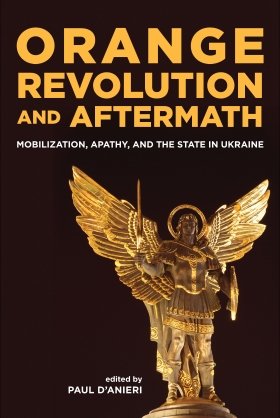Orange Revolution and Aftermath: Mobilization, Apathy, and the State in Ukraine



In 2004, hundreds of thousands of Ukranian protestors mobilized in the streets of Kyiv against authoritarian rulers who had clearly falsified the Fall elections. The size and efficacy of the Orange Revolution, as the protest became known, surprised political observers—and even the participants themselves. In the aftermath, many observers concluded that civil society, long thought dead in Ukraine, was alive and well.
After the success of the Orange Revolution, it was widely expected that civil society groups would take an increasingly prominent role in Ukrainian politics, reinvigorating democracy. Yet that influence diminished rapidly, and when the new government also became tainted with corruption, there was no protest or counterattack. This book explores why the influence of civil society groups waned so quickly.
The contributors to this volume probe civil society in Ukraine from a variety of disciplinary perspectives to understand the contest for social mobilization in Ukraine. The essays provide a wealth of new data based on surveys, interviews, documentary analysis, and ethnography.
Paul D’Anieri is a professor of political science and dean of the College of Liberal Arts and Sciences at the University of Florida.

The Kennan Institute is the premier US center for advanced research on Eurasia and the oldest and largest regional program at the Woodrow Wilson International Center for Scholars. The Kennan Institute is committed to improving American understanding of Russia, Ukraine, Central Asia, the South Caucasus, and the surrounding region through research and exchange. Read more



